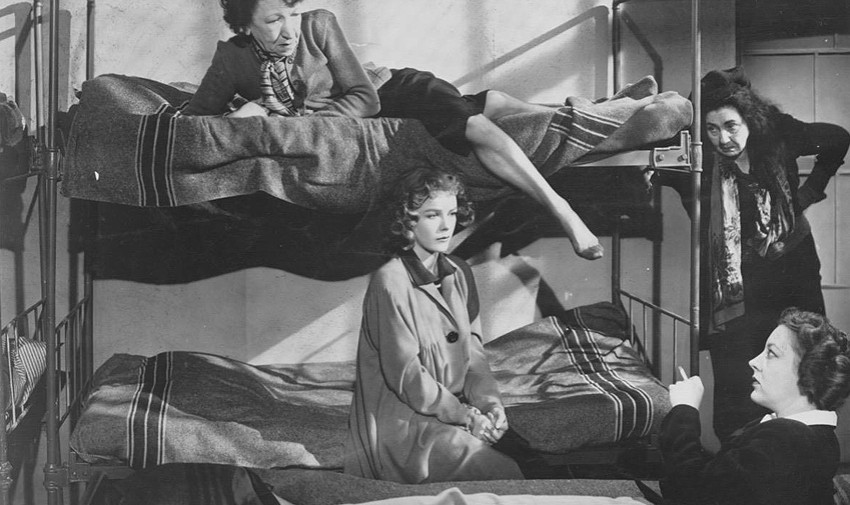
Not Wanted (1949) was the last film that Elmer Clifton contributed to. After a short period Clifton, a maestro at the “slave girl” exploitation shocker of the thirties, was taken ill and replaced as director by Ida Lupino who had already contributed to the screenplay of Not Wanted and was also acting as producer. Not Wanted is Lupino’s first film as a director, and marks the arrival of one of the most important women directors in all of film history.
Not Wanted sets the mold for Lupino’s career as a filmmaker. Everyone of Lupino’s films of this period addresses a major social issue that functions not just as a public service announcement to the public, but as a subversive gesture to the Hollywood mainstream that refused to make pictures at that time that dealt with more controversial subject matter. Not Wanted begins this tradition by tackling the story of an unwed mother (played by Sally Forrest). Lupino’s cinema is a cinema of activism and advocacy, of bold political statements made in the guise of the B-movie.
Tonally Not Wanted is equal parts pulp magazine exposé and part Theodore Dreiser novel. The narrative moves at a brisk pace with punchy dialogue that serves the dramatic economy of the hardboiled drama. Lupino punctuates melodramatic moments with expressionist flourishes where images become so subjective that they take on a surreal quality. This ingenuity is what marks the superior B-movie of the time; placing Lupino in the same ranks of outsider auteurs as Val Lewton, Joseph H. Lewis, and Samuel Fuller.
Not Wanted isn’t a great film, but it’s essential to the anthropological study of film. Lupino’s work in the late forties and early fifties functions as a collective statement about the people marginalized by patriarchal society. Lupino, in her career and her art, made one of the greatest feminist statements in the history of the cinema, paving the way for women to branch into more creative roles and more male dominated genres.
